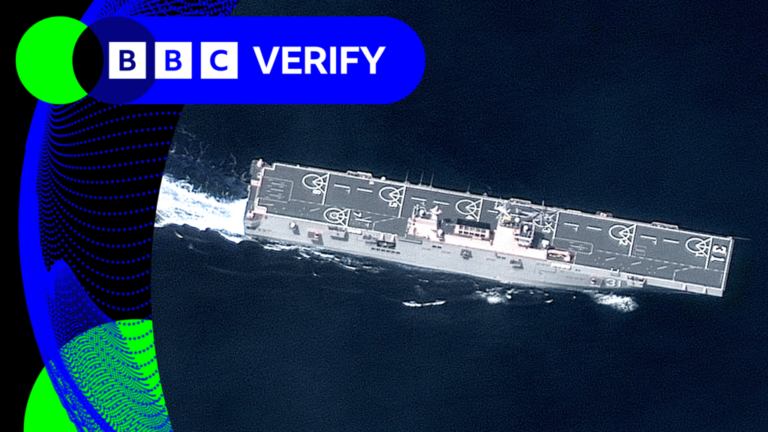
The United States Space Command’s (USSPACECOM) Operation Olympic Defender (OOD) program aims to deepen cooperation among the U.S. and its allies to deter aggression in space and ensure access to the domain for all nations. In October 2024, the program took a significant step toward that goal with the additions of France and Germany.
The longtime NATO allies’ entry into the coalition — which comes amid increasing militarization in space, particularly by China and Russia — boosts multinational collaboration in space defense. OOD also includes Australia, Canada, New Zealand and the United Kingdom.
“According to our assessment, multinational cooperation is key to security and defense in space as no nation can guarantee unimpeded access to and secure use of space unilaterally,” Lt. Gen. Gunter Schneider, director-general for military strategy and operations at the German Defense Ministry, said during an OOD welcome ceremony in mid-October in Berlin. “Our common efforts as allies to increase our space domain awareness will not only lead to a better understanding of the space domain, but it will also dissuade possible adversaries from dangerous and escalatory behavior in space as they will have to take into account that we can closely observe and evaluate each of their actions.”
Maj. Gen. Philippe Adam, French Space Command commander, echoed that theme, saying that his nation’s entry into the program “marks a new stage in the conduct of military space operations in coalition and sends out a clear message of strategic solidarity with our allies.”
While increased threats in space stem principally from China and Russia, other nations, including Iran and North Korea, are bolstering their counterspace capabilities, according to an April 2024 report by the Center for Strategic and International Studies (CSIS), a U.S.-based think tank. Among the threats cited are direct-ascent anti-satellite (DA-ASAT) weapons, lasers (or dazzlers), satellite jamming and spoofing, cyberattacks, and high-powered microwave emitters.
Other worrying developments include increased cooperation among Iran, North Korea and Russia, as well as reports that Moscow is developing a counterspace weapon that involves nuclear technology. Still, China, which has rapidly escalated its space-based capabilities, remains the U.S.’s pacing challenge.
“China has demonstrated nearly every counterspace capability covered in this report, having fielded jamming and directed energy systems, demonstrated DA-ASAT capabilities, and tested technologies relevant to on-orbit counterspace weapons systems,” CSIS noted.
At the April 2024 Space Symposium in Colorado Springs, Colorado, U.S. Space Force Gen. Stephen Whiting, commander of USSPACECOM, reiterated such concerns, noting Beijing has tripled the number of intelligence, surveillance and reconnaissance satellites on orbit since 2018, while also developing “a kill web over the Pacific Ocean to find, fix, track and, yes, target United States and allied military capabilities.”
“The threats we’ve been talking about for years are no longer theoretical possibilities,” Whiting said in his keynote address. “They are deployed in the domain and terrestrially and many of them are now on combat duty in China and Russia. They hold at risk our modern way of life and how we defend this nation. And we must be able to deter and counter these threats when called upon to achieve space superiority.”
Aligning Values, Operations
The addition of France and Germany to OOD signals to aggressors the international community’s resolve to defend space and ensure access for all nations, Makena Young, a fellow with the Aerospace Security Project at CSIS, told Apogee.
“One of the unique strengths of the United States when compared to China and Russia is our allies,” said Young, a co-author of the CSIS’s Space Threat Assessment. “Allies make the U.S. and our position stronger, and signal to China and Russia that we have a growing ability to address threats and that we have a wide range of nations aligned with our values and operations.

“The addition of countries like Germany and France, which each have growing space capabilities of their own, creates a larger network for the United States for things like space domain awareness, which can lead to a better understanding of the space environment and the actions of others.”
Paris brings significant military and technological know-how to the multinational force. The CSIS assessment noted that France, which established a space command in 2019, was “the most vocal” among European nations in stating its aims for developing and fielding counterspace weapons.
“In April 2023, the Ministry of the Armed Forces of France released its 2024-2030 Military Programming Law, which includes plans for orbital counterspace capabilities,” CSIS reported. “These include a project for ‘lasers in orbit’ called FLAMHE and a ground-based laser counterspace system called BLOOMLASE, both of which aim to be operational by the end of the decade. An article published by the ministry in October 2023 mentions plans for a GEO [geosynchronous Earth orbit]-based active defense constellation. A demonstrator satellite for the constellation was expected to launch in 2025.”
Germany has stepped up its focus on space defense, as well. The federal government, in its 2022 National Security Strategy, for the first time acknowledged space as a “strategic dimension” for the military. “For several years now, outer space has become an ever more important part of our security,” said the report, “Integrated Security for Germany.”

“The safe use of space, especially in the form of satellite communications and navigation as well as Earth observation satellites, has become indispensable for many spheres of civilian life. At the same time, the military use of space has become increasingly significant for modern armed forces. The Federal Government will therefore place a stronger focus on space as a strategic dimension and expand its capabilities in this domain.”
Germany’s Defense Ministry and Foreign Office subsequently began drafting a space security strategy. A report by the Economic Affairs and Climate Action Ministry in September 2023 also recognized the domain’s strategic importance, calling for increased space capabilities and cooperation with partner nations.
“We plan to intensify our strategic cooperation with our partners, with the aim of protecting the space industry’s global supply chains against unlawful influence, espionage … and sabotage,” the report stated. “In our R&D [research and development] cooperation in the area of critical and emerging space technologies, we are giving special priority to safeguarding such technologies, in the interest of international security and of preventing abuse of the technologies.”
A Synchronized Mission
USSPACECOM, which oversees OOD, welcomes these developments. At the Berlin ceremony, Whiting said international cooperation is key to safety and security in space. “The addition of Germany to our roster of growing like-minded partners contributes to our collective ability to address the growing threats in the domain and ensure space remains safe and secure for generations to come,” he said.
Similarly, France’s inclusion, he said, “codifies our shared commitment to ensuring the safety and security of the domain against the growing range of threats.”
USSPACECOM describes OOD as “a multinational effort that focuses to optimize space operations, improve mission assurance, enhance resilience of space-based systems, synchronize efforts to strengthen deterrence against hostile actors and reduce the spread of debris orbiting the Earth.”

At the symposium in Colorado, Whiting said OOD enables members to share intelligence, train and plan operations with the intention of imparting to adversaries the understanding that “we’re always watching together.”
“We’ll execute combined training and exercises where we develop our command and control, and plans, and we demonstrate interoperability,” said Whiting, the multinational force OOD commander. “We’ll close friendly kill chains to improve the speed that joint force commanders can make decisions by linking friendly sensor-to-shooter information. We will reveal to deter, and we will conceal to win. And by presenting a potential adversary with synchronized and compounding dilemmas, it’s our job to instill doubt, so that every morning they wake up and say, ‘today is not the day for armed conflict.’”
The OOD program was established under the U.S. Strategic Command in 2013 and transitioned to USSPACECOM after the command was reestablished in August 2019 as a separate entity. USSPACECOM’s Combined Force Space Component Command oversees OOD.
In May 2020, then-USSPACECOM Commander Gen. John W. “Jay” Raymond called the addition of OOD “a major milestone for the newly established command.”
“As the threats in the space domain continue to evolve, it is important we leverage and synchronize capabilities with our allies not only to understand each other’s national perspectives, but to work seamlessly together to optimize our multinational space efforts,” Raymond said in a statement.
In July 2019, the U.K. became the first international partner to announce its participation in the program, with its personnel subsequently assigned to the Combined Space Operations Center and the 18th Space Control Squadron at Vandenberg Air Force Base, California. Australia and Canada joined in 2020 and New Zealand in September 2024.
Testifying before the U.S. Senate Armed Services Committee in February 2024, Whiting reiterated the importance of multinational cooperation.
“USSPACECOM seeks to expand competitive advantages over the PRC [People’s Republic of China] and Russia by leveraging every available asset of the interagency, the rest of the joint force, our allies, and our partners in U.S. commercial industry and academia,” he said. “No one department, service, command, even country can do all the things we need to do. … We partner as widely as we can with like-minded countries and organizations because it maximizes our ability to execute our mission.”
This article originally appeared in March 2025 in Apogee magazine, which is published
by the U.S. Space Command for Allies and Partners to strengthen U.S. security partnerships in space and to provide an international forum to address global space defense challenges.





